Top 10 Job Skills for 2025
Let’s start with the bad news: According to the World Economic Forum, by 2025, 85 million jobs could be lost to automation. That’s a lot of jobs. Before the worry sets in, here’s the good news: 97 million new roles will be created. Many of these roles will involve the interface between humans, machines, and algorithms.
What does this mean for today’s youth and how can we prepare them for tomorrow’s workforce?
In October 2020, the World Economic Forum (WEF) produced the Future of Jobs Report. The report highlights the shift in the job landscape over the next four years. There will be a significant decrease in demand for jobs such as data entry clerks, accountants, bookkeepers, and assembly and factory workers. And the 97 million new roles? There will be an increase in the need for digital marketing specialists, software and applications developers, and big data specialists.
With these new jobs, employers will be looking for specific skills. The WEF highlights the top skills that today’s employers recognize as being important in tomorrow’s workforce. They include:
Top 10 Job Skills of 2025
Photo by Branko Stancevic on Unsplash
Analytical Thinking and Innovation (Problem Solving)
Active Learning and Learning Strategies (Self Management)
Complex Problem Solving (Problem Solving)
Critical Thinking and Analysis (Problem Solving)
Creativity, Originality, and Initiative (Problem Solving)
Leadership and Social Influence (Working with People)
Technology Use, Monitoring, and Control (Technology Use and Development)
Technology Design and Programming (Technology Use and Development)
Resilience, Stress Tolerance and Flexibility (Self Management)
Reasoning, Problem Solving and Ideation (Problem Solving)
Most of the skills mentioned are considered ‘soft skills’- something I discussed in Hard Skills Vs Soft Skills: What’s the Difference?. Soft skills are non-technical skills that relate to how you work. They include how you interact with colleagues, how you solve problems, and how you manage your work. In the WEF list, problem-solving, self-management, and working with people skills fall under soft skills. Technology use and development fall under hard skills.
The BTS Work it (Summer Jobs Program) focuses on teaching both hard skills and soft skills, in the dynamic non-profit sector. We use real-work experience, tutorials, and workshops to provide our participants with the skills they need to succeed and thrive in tomorrow’s workforce.
Parents, educators, and coaches: consider reviewing this list and using it as a tool to further support youth in the development of their employability skills. Show them that they can develop many of these skills through sport. Remind them that their commitment to managing moments on the mat, in the rink, or on the field provides them with the training and experience they need to succeed in the workplace.
Blog post image by Gino Crescoli from Pixabay


